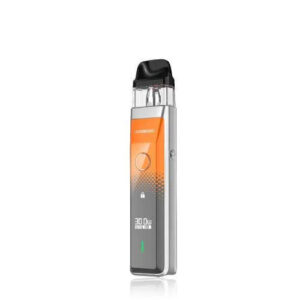Understanding Allergies: Causes, Symptoms & Treatments
What Are Allergies? Allergies are the body’s immune response to substances that are typically harmless to most people. When exposed...
What Are Allergies?
Allergies are the body’s immune response to substances that are typically harmless to most people. When exposed to allergens, the immune system overreacts, producing symptoms that range from mild to life-threatening. In the United States, allergies affect millions each year and are among the most common chronic conditions, especially in children and adults with a family history of allergic disease.
The severity and frequency of allergic reactions vary widely. Some individuals experience occasional symptoms, while others struggle with year-round issues requiring consistent treatment and monitoring.
Common Allergy Triggers
Allergy triggers differ from person to person but tend to fall into a few key categories:
- Environmental allergens: Pollen, mold spores, dust mites, and pet dander are the most frequent airborne triggers. These are especially common during seasonal changes.
- Food allergens: Peanuts, dairy, shellfish, eggs, and tree nuts often cause food allergies. Reactions can appear immediately or a few hours after eating.
- Insect stings: Bee and wasp stings can trigger mild swelling or, in some cases, dangerous anaphylaxis.
- Medications: Some individuals may react to antibiotics, pain relievers, or vaccines.
- Chemical sensitivities: Ingredients in perfumes, cleaning supplies, and cosmetics can also provoke skin or respiratory reactions.
Recognizing the source of allergic reactions is the first step toward managing symptoms effectively.
Symptoms of Allergic Reactions
Allergy symptoms vary based on the trigger and how the body responds. Common signs include:
- Sneezing, nasal congestion, and runny nose
- Itchy or watery eyes
- Skin rashes, hives, or eczema
- Shortness of breath or wheezing
- Digestive issues like nausea or cramps
- Swelling of the lips, tongue, or throat (in severe reactions)
In rare cases, individuals may experience anaphylaxis, a rapid, life-threatening allergic reaction that requires immediate medical attention. It’s important to monitor any pattern of symptoms and seek professional help if they worsen or persist.
Clinics such as Absolute Urgent Care are equipped to evaluate allergy symptoms, provide immediate relief, and recommend long-term care plans tailored to each patient’s needs.
Diagnosis and Allergy Testing
Identifying the cause of allergies typically involves a detailed medical history, symptom tracking, and allergy testing. Skin prick tests, blood tests, and elimination diets can help detect sensitivities to specific allergens.
Once a diagnosis is confirmed, healthcare providers can recommend personalized treatments. Absolute Urgent Care offers access to diagnostic resources and clinical expertise that assist patients in understanding their unique allergy profiles.
Early diagnosis can make a significant difference in managing symptoms and preventing complications down the line.
Treatment and Prevention Strategies
Treating allergies involves avoiding known triggers and managing symptoms through medication or lifestyle changes. Common treatments include:
- Antihistamines: Help relieve sneezing, itching, and runny nose.
- Nasal corticosteroids: Reduce inflammation in the nasal passages.
- Decongestants: Relieve short-term nasal congestion.
- Allergy shots (immunotherapy): Provide long-term relief for severe allergies.
- Epinephrine auto-injectors: Used during emergency anaphylactic reactions.
Preventive measures like keeping windows closed during high pollen seasons, using air purifiers, and cleaning regularly can reduce exposure to environmental allergens. For food allergies, reading labels and avoiding cross-contamination is essential.
When to See a Healthcare Provider
If allergy symptoms interfere with your daily activities, sleep, or quality of life, it’s time to seek medical advice. Persistent or worsening symptoms may require prescription medications or additional evaluation.
Prompt care can reduce the risk of complications and improve overall well-being. Whether it’s seasonal allergies or chronic reactions, having a trusted provider can make all the difference in effective allergy management. Absolute Urgent Care emphasizes both treatment and prevention, helping patients build sustainable strategies to live comfortably with allergies.






